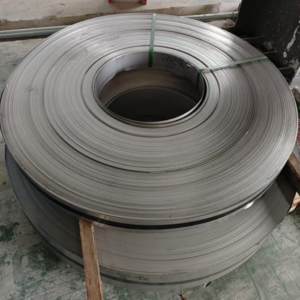Get in touch with us
Leave a message
Unveil the power of our versatile stainless steel coils, crafted from austenitic, ferritic, and duplex grades to meet various industrial challenges. From high-strength options for heavy-duty use to specialized corrosion-resistant materials, we deliver a variety of compositions and finishes to suit your exact needs. Leveraging our extensive expertise, we ensure top-tier performance and affordability across all budgets. Our skilled team offers personalized solutions for standard or tailored specifications backed by decades of industry experience.

Stainless Steel Coil is governed by standards like ASTM A240, A480, and A666, ensuring quality across grades such as 304, 316, 430, and 201. These standards define properties like corrosion resistance, thickness, and finish. For instance, a 304 Stainless Steel Coil aligns with ASTM A240 for general use, while 316 offers superior pitting resistance per the same spec. Classifications split into austenitic (e.g., 304, 316), ferritic (e.g., 430), and martensitic (e.g., 410) types, with grades further distinguished by finishes like 2B finish steel or brushed options. Stainless Steel Coil, typically ranging from 0.3mm to 3mm in thickness, adheres to similar standards but is often tailored for flexible applications.
Stainless Steel Coil comes in a wide range of sizes to suit diverse needs. Common dimensions include:
This flexibility ensures Stainless Steel Coil fits everything from small fabrications to large industrial builds.
Stainless Steel Coil comes in various types and finishes, each tied to specific manufacturing processes:
| Grade | Characteristics | Applications |
|---|---|---|
| 304 Stainless Steel Coil | Excellent corrosion resistance, Good formability and weldability, Non-magnetic, Moderate strength | Food processing (e.g., countertops, tanks), Architectural trim, Automotive parts (e.g., exhausts), Kitchenware (e.g., sinks) |
| 316 Stainless Steel Coil | Superior corrosion resistance (especially in chloride environments), High durability | Marine components (e.g., boat fittings), Chemical processing plants, Surgical instruments, Coastal architecture |
| 201 Stainless Steel Coil | Good corrosion resistance, Lower cost than 300 series, Limited weldability, Magnetic | Automotive trim, Appliance interiors (e.g., refrigerators), Decorative panels, Exhaust systems |
| 430 Stainless Steel Coil | High strength and hardness (when heat-treated), Moderate corrosion resistance, Magnetic | Cutlery, Turbine blades, Valves and pump parts, Fasteners |
A:A stainless steel coil is a continuous roll of stainless steel, typically grades 304 or 316, used in manufacturing. It’s available in various thicknesses and widths, ideal for forming, stamping, or cutting into sheets.
A: Yes, stainless steel coils are safe for food processing, medical, and construction applications due to their non-toxic, corrosion-resistant nature, especially grades like 316, which resist chemical leaching.
A:Stainless steel coils are strong, with tensile strengths of 500-1000 MPa, depending on the grade. Cold-rolled coils (e.g., 304) offer higher strength and hardness for structural applications.
A: Stainless steel coils are used in automotive for exhaust systems, construction for roofing, appliances for kitchen equipment, and industrial manufacturing for pipes and tubes due to their versatility.
A:Stainless steel coils resist rust due to their chromium content, but in harsh environments (e.g., saltwater), 316 coils perform better than 304. Proper storage and surface treatments prevent rusting.
A:Stainless steel coils can last 20-30 years or more with proper storage in dry, non-corrosive conditions. In harsh environments, their lifespan may be 10-15 years, depending on the grade and maintenance.

Professional manufacturer of premium specialty alloys, offering stainless steel, Hastelloy, nickel-based alloys and processing services. Delivering superior metallurgical solutions for aerospace, petrochemical, marine engineering and other demanding industries.